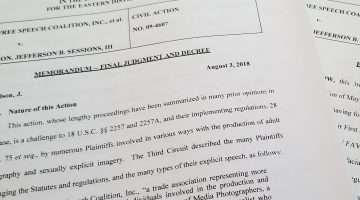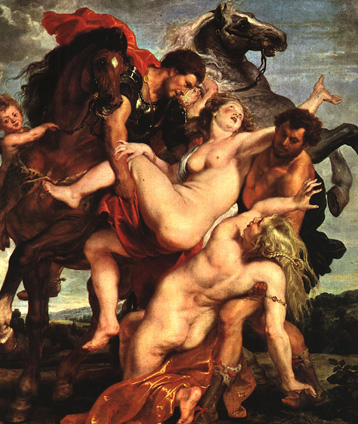 SACRAMENTO, Calif. – California Assembly member Mary Salas (D-San Diego) Wednesday introduced AB 847, a bill that would impose a 20 percent tax on retailers of “adult material/harmful material,” on gross receipts of tangible sales, including revenue generated by adult movies, and on novelties and “live sexually explicit conduct.”
SACRAMENTO, Calif. – California Assembly member Mary Salas (D-San Diego) Wednesday introduced AB 847, a bill that would impose a 20 percent tax on retailers of “adult material/harmful material,” on gross receipts of tangible sales, including revenue generated by adult movies, and on novelties and “live sexually explicit conduct.”
Revenue from the tax would go to a newly created Adult Venue Impact Fund, which local law enforcement agencies would use to deal with the “secondary effects” allegedly associated with adult entertainment businesses.
The bill claims that adult entertainment venues have been proved to “adversely impact the character of local neighborhoods by, among other things, reducing local property values, curtailing development, and engendering many types of criminal activities,” as well as, “endanger(ing) the health, safety, and welfare of citizens in their vicinity.”
Assembly Bill 847 would levy a 20 percent tax on the gross receipts of any business in California that was described as:
- A retail establishment whose gross receipts from the sale or rental of adult material exceeds 50 percent of all gross receipts of the retail establishment.
- The premises of any facility located in California that provides a public or private viewing of adult material.
- The public premises of any facility located in California that offers live sexually explicit conduct that is prohibited to audiences under 18 years of age or 21 years of age, depending on whether alcoholic beverages are sold on the premises.
The California Board of Equalization would be charged with the authority and responsibility to review movies and determine whether each movie should be taxed, if the bill was passed.
“Harmful material” would be defined by Section 313 of the Penal Code.
Free Speech Coalition (FSC) California lobbyist Ignacio Hernandez speculated that the bill could be found unconstitutional on several points including taxation based on the content of a movie, which might then include mainstream movies defined as “harmful material,” or other material undefined by the retailer. This overly broad definition is likely to be opposed by entertainment organizations like the Motion Picture Association of America (MPAA), according to Hernandez.
He also said that the bill was introduced several weeks past the normal legislative deadline.
“This measure is clearly unconstitutional and unworkable,” Hernandez said. “This bill is much broader than previous efforts to tax adult movie and novelty retailers. Therefore, it suffers from greater constitutional defects than prior bills.”
“Punishing legitimate retailers who choose to locate in neighborhoods with a need for commercial tenants is not the type of policy we need during these tough economic times,” Hernandez was quick to point out, in terms of restrictions that might be imposed on adult businesses under the proposed bill.
“As soon as this bill was announced this morning we began working the halls of the State Capitol to stop this unconstitutional measure as quickly as possible,” he added. “This is not part of the larger budget discussions since it is not even scheduled for its first hearing until after next week’s Legislative budget deadline. It would not get to the Governor until the fall of this year.”
A hearing on the proposed bill is scheduled for next month.











No Comment